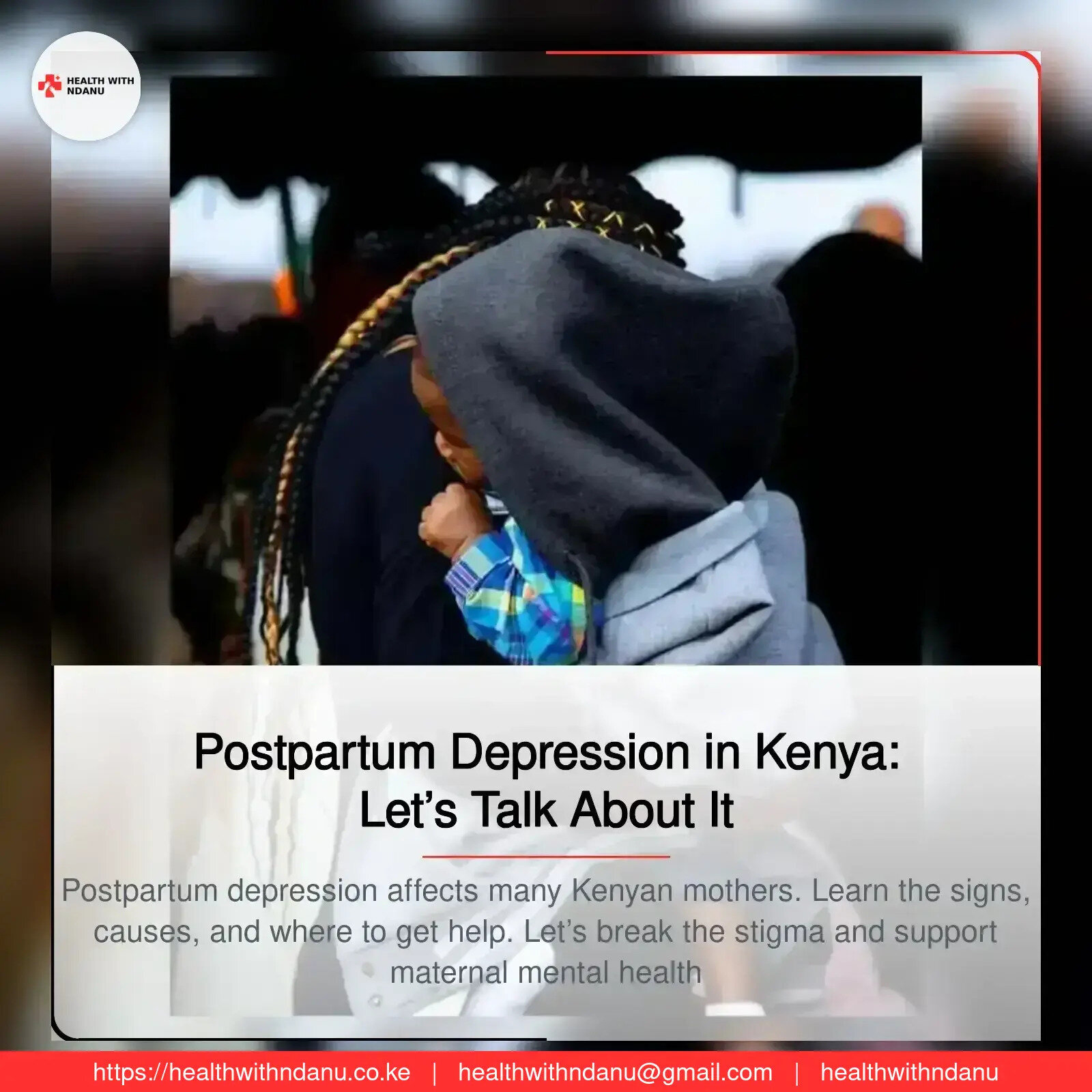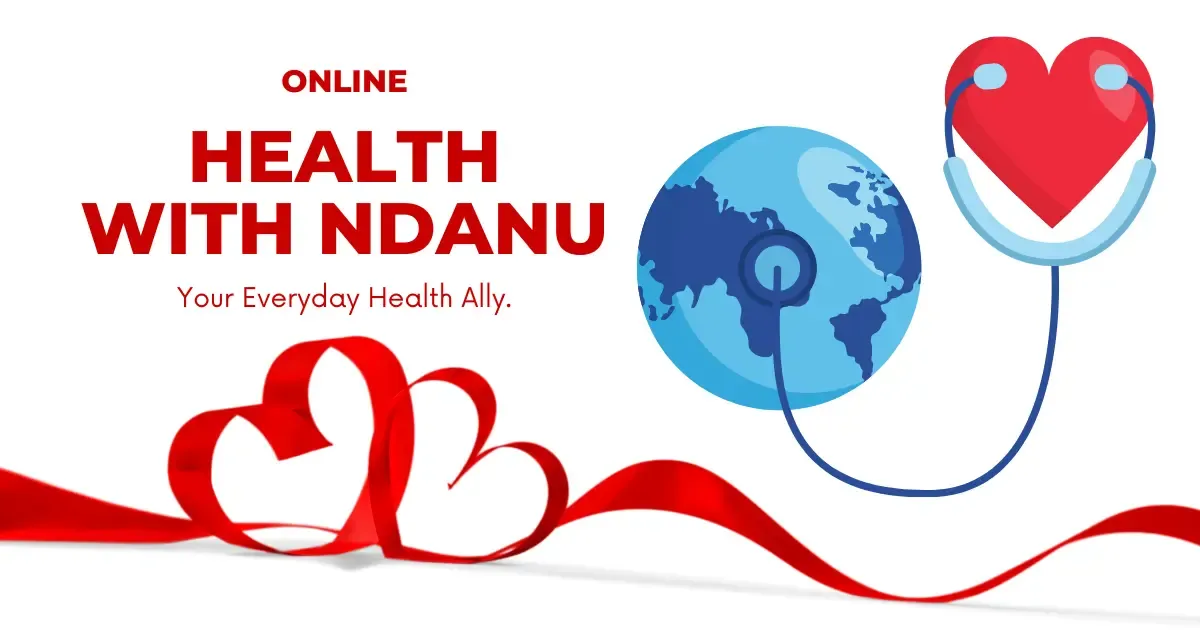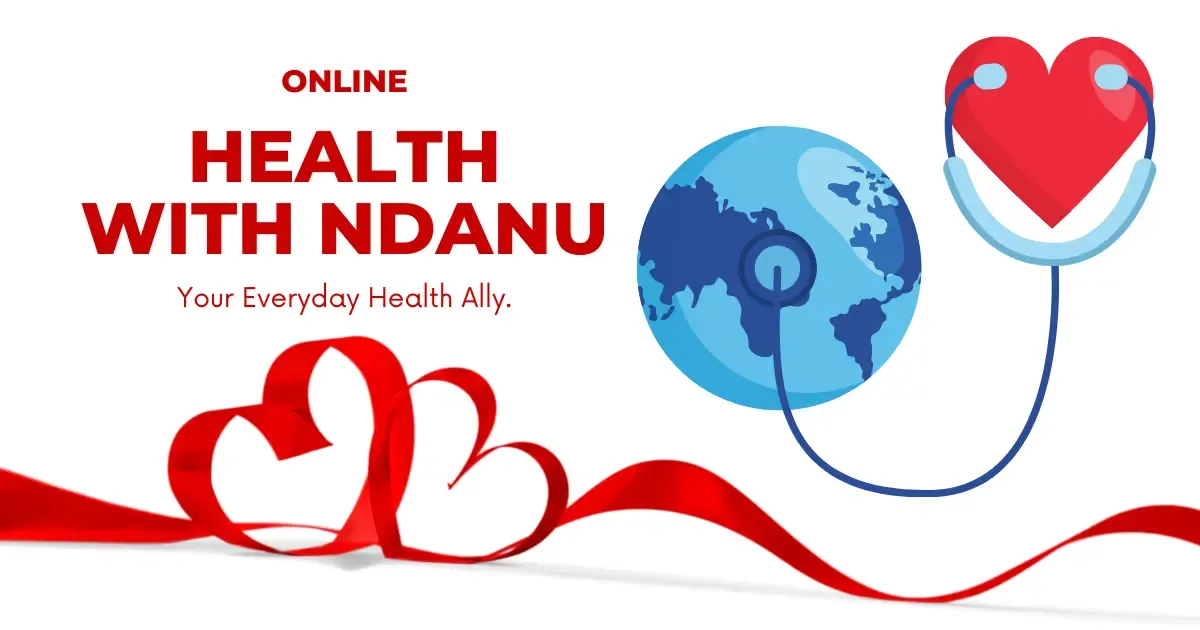Postpartum Depression in Kenya: Let’s Talk About It
- by Diana Ndanu
- 10 April, 2025
- 0 Comments
- 7 Mins



Introduction
Childbirth is often described as a miracle—a moment of joy, bonding, and new beginnings. But for many women in Kenya and across Africa, what follows isn’t always a fairy tale. Instead, it’s a quiet storm filled with sadness, anxiety, exhaustion, and fear. This storm has a name: postpartum depression.
In this article, we’ll break the silence around postpartum depression in Kenya. We’ll talk about what it really is, how to spot it, why it happens, and—most importantly—how to get help. Because the truth is, thousands of new mothers are suffering silently. And it's time to bring this conversation into the light.
What Is Postpartum Depression (PPD)?
Postpartum depression is a serious but treatable mental health condition that affects mothers after childbirth. It can start days, weeks, or even months after delivery. It’s more than just the “baby blues.”
The baby blues usually last a few days after birth. You might feel moody, tearful, or overwhelmed—but these feelings go away on their own.
Postpartum depression, on the other hand, is more intense and lasts much longer. It can interfere with your ability to bond with your baby, take care of yourself, or function normally.
Why Are We Not Talking About This in Kenya?
In Kenyan culture, motherhood is seen as a blessing. Society expects new mothers to be smiling, nurturing, and strong. But what happens when a mother doesn’t feel that way?
Here are a few reasons postpartum depression is rarely discussed:
- Stigma: Talking about depression is already hard. Talking about it after having a baby feels shameful for many.
- Lack of awareness: Many don’t know PPD exists. They think they’re just failing as mothers.
- Cultural expectations: In many communities, women are expected to bounce back quickly—cook, clean, nurse the baby, and host visitors.
- Limited access to mental health care: In rural Kenya, mental health services are scarce. Even in cities, the cost or fear of judgment keeps women silent.
Let’s change that.
Signs and Symptoms of Postpartum Depression
Not every woman experiences postpartum depression the same way, but here are common signs to watch for:
Emotional symptoms:
- Feeling sad or hopeless
- Frequent crying without a clear reason
- Mood swings
- Anxiety or panic attacks
- Guilt or feeling like a bad mother
Mental symptoms:
- Trouble concentrating
- Difficulty making decisions
- Feeling disconnected from your baby
- Thinking you’re not good enough
- Thoughts of harming yourself or the baby (in severe cases)
Physical symptoms:
- Fatigue or feeling tired all the time
- Sleep problems (even when the baby is asleep)
- Changes in appetite
- Headaches or unexplained aches
If you or someone you know has several of these symptoms for more than two weeks, it could be postpartum depression.
Who Is at Risk of Postpartum Depression?
Any mother can experience PPD, but certain factors increase the risk:
- History of depression or anxiety
- Complicated pregnancy or birth
- Lack of support from partner or family
- Financial stress or poverty
- Unplanned pregnancy
- Domestic violence or emotional abuse
- Cultural pressure to be the “perfect mother”
In Kenya, many women face several of these challenges all at once.
The Hidden Impact on Mothers and Families
Postpartum depression doesn’t only affect the mother—it impacts the entire family.
On mothers:
Many mothers struggle silently. They blame themselves, feel unworthy, and suffer from burnout. Some may even stop breastfeeding, neglect their health, or avoid bonding with the baby.
On babies:
Research shows that babies of mothers with untreated PPD may have:
- Slower emotional development
- Problems with feeding and sleep
- Weaker mother-child attachment
On families:
Relationships may suffer. Spouses or partners may feel confused or shut out. Other children may feel neglected. And in communities where mental health is misunderstood, a struggling mother may be labeled as lazy or weak.
Let’s Talk About Postpartum Psychosis
In rare cases, a condition called postpartum psychosis can occur. It’s more severe than PPD and can be life-threatening. It involves:
- Hallucinations (seeing or hearing things that aren’t there)
- Delusions (strong beliefs that are false)
- Severe mood swings
- Confusion or paranoia
This is a medical emergency. If you or someone you know shows signs of postpartum psychosis, seek immediate help at a hospital or mental health facility.
Is There Help for Postpartum Depression in Kenya?
Yes. Help exists. And recovery is possible.
Here are some ways to manage and treat PPD in Kenya:
1. Talk Therapy (Counseling):
- Speak to a trained mental health counselor or psychologist.
- Some county hospitals and NGOs offer free or low-cost sessions.
2. Support Groups:
- Sharing your experience with other mothers can be healing.
- Look for online or community-based mothers’ groups.
3. Medication:
- In some cases, antidepressants may be prescribed by a psychiatrist.
- These are safe when used correctly—even during breastfeeding (consult your doctor).
4. Lifestyle Changes:
- Get enough rest—ask for help with the baby.
- Eat well and stay hydrated.
- Get fresh air and light exercise, like walking.
- Stay connected with supportive people.
5. Partner and Family Involvement:
- Educate spouses and in-laws about PPD.
- Encourage them to support and not criticize.
- A supportive partner can make a big difference.
Stories from Kenyan Mothers
Let’s hear from a few real Kenyan mothers who’ve been through it:
“I didn’t want to hold my baby…”
"After my second child, I cried every night. I felt nothing for my baby. I was scared to tell anyone. My mother said I was just tired. It wasn’t until a nurse at the clinic asked me how I was feeling—and really listened—that I got help."
— Ann, 32, Nakuru
“Everyone expected me to be happy, but I was drowning.”
"My husband was supportive, but even he didn’t understand. I had to pretend everything was okay. Therapy saved me."
— Jane, 28, Nairobi
“Postpartum depression almost ended my life.”
"I thought I was cursed. I stopped eating, I stopped sleeping. I thank God for the CHV who referred me to a counselor at the county hospital."
— Mama Akinyi, 35, Siaya
How Communities Can Help
We all have a role to play in supporting mothers:
- Healthcare workers should screen for postpartum depression during postnatal visits.
- CHPs (Community Health Promoters) can provide education and referrals.
- Religious leaders can preach about mental health from the pulpit.
- Husbands and family members should check in on new mothers—not just the baby.
- Friends and neighbors can offer help, not judgment.
Mental Health Support Services in Kenya
Here are some places to get help:
- Mama Lucy Kibaki Hospital, Nairobi – Has mental health services
- Befrienders Kenya – befrienderskenya.org
- Chiromo Hospital Group – Specialized care for mental health
- Kenya Red Cross Psychosocial Support
- Mental 360 Kenya
- Aga Khan University Hospital Mental Health Clinic
- Public County Hospitals with psychiatric units
Final Words: You Are Not Alone
Postpartum depression is not a sign of failure. It’s not a curse. It’s not something to be ashamed of.
It is a health condition that deserves care, support, and understanding.
If you are a new mother and you’re not feeling okay—it’s okay to say so.
Speak up. Ask for help. You are not alone.
Visit HealthWithNdanu.co.ke for more real, relatable health content made for Kenyan families.
Got Your Own Experience? Share with us
Popular Categories
Most Visited Blogs
Daily Newsletter
Get all the top stories from Blogs to keep track.



